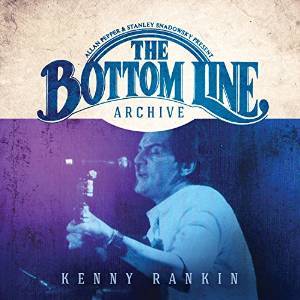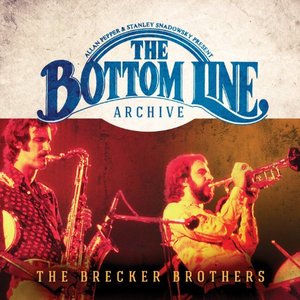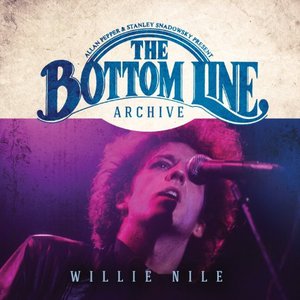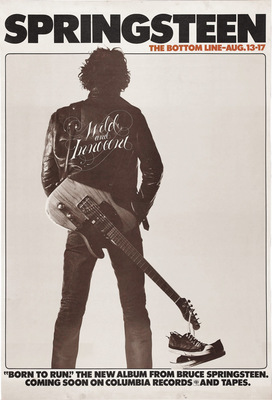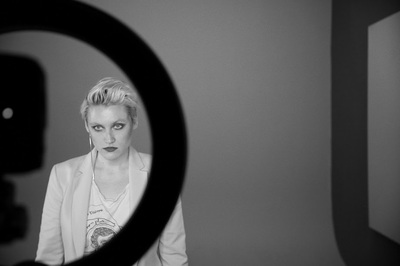JON REGEN'S "STOP TIME" PREMIERE
According to Jon Regen...
"The title track of my new Motéma album Stop Time is an example of how you just never know when and where a song will show up. In the fall of 2013, I had just finished performing on the London Jazz Festival when a friend of mine, noted British actor and recent Vivienne Westwood biographer Ian Kelly, invited me to a party at his London home. Ten minutes and numerous glasses of champagne after arriving, I bumped into the actor Jeremy Irons, who I have been a huge admirer of for many years. I told him, 'I'd love to take a photo with you, because like me, my Dad is also a huge fan of yours. He replied, 'I'll let you take a picture with me, if you play the piano for me.' And so, not wanting to disappoint a verified Academy Award-winning actor, we migrated over to the home's grand piano and I proceeded to get to work.
"After sitting down at the piano, my hands instinctively started playing a sort of New Orleans-style, blues vamp. Moment's later and without warning, Jeremy grabbed a cello that was hanging on a nearby wall and started playing it like an upright bass--you can see actual video footage from that jam session here. It was amazing. Minutes before we were just strangers meeting at a party, the next minute, we were locked in a fierce musical dialogue. We jammed together on that one song for nearly 15 minutes. When I returned home to New York City, I married the bluesy, New Orleans feel from that jam session to a set of lyrics I had written about a guy who has watched his youth slip away and is looking for a way to stop time. There was something about the sardonic nature of the lyrics, combined with the grooving backbeat of the music that immediately sounded right to me. The resulting song 'Stop Time' became the anchor for the album that was to come, and intrigued Motéma Music President Jana Herzen enough to sign me to her label. Davey Faragher and Pete Thomas from Elvis Costello and the Imposters instinctively knew just what to play on that song to make it deliciously dirty and fun. It's still my favorite song to play live from the new album. So I think the moral of the story is, be open and ready to follow a song - wherever it may take you. And of course, never turn down a party invite!"
******************************
A Conversation with Allan Pepper
Mike Ragogna: Allan Pepper, what is the bottom line on Bottom Line Records?
Allan Pepper: This is a project that has been several years in the making but at last we've been able to pull it off. We have over a thousand performances in our vault that were recorded live at The Bottom Line. Some of them were radio broadcasts, some of them were board tapes, some of them were done on DAT, they're in all different formats, but there are a thousand different performances which constitute early shows and late shows. The reason it's taken so long is because first of all they have to get the rights to release this material and second of all we have to restore this material. Some of these tapes were done when the club opened in 1974, 1975, so there's a whole process of restoration that goes into it. Fortunately, we're working at The Magic Shop, which is one of the premier places of restoration. There's nothing that the people who work there have not not come across in their career. They've seen just about everything, which gives us a real comfort level in working with them.
MR: Does this also involve reissuing or reworking some of the older releases originally released on Bottom Line Records years back?
AP: That's a great question. In the late nineties -- I think '96 or '97 -- there were eleven titles released on Bottom Line Records, but five of those titles were live performances done at The Bottom Line and they were called The Bottom Line Encore Series. Basically, what we're doing is remastering and re-releasing those five titles along with two other CDs that we'll put out called In Their Own Words, which was a compilation of moments of the songwriter shows we were doing at the bottom line. So those seven titles are being remastered and re-released, plus we're going into the vaults and bringing out material that has never been out. So the first three releases came out on March 23rd and they are a Kenny Rankin performance at the Bottom Line which has been out already as part of the encore series, it has been remastered and it is a very important CD in the sense that from our knowledge it's the only live recording on CD of any of his performances.
In addition to that, we're releasing for the first time a Brecker Brothers performance which took place in 1976 and is also a classic recording because at that time the band was composed of all these terrific studio players who were in enormous demand, so they never went out and toured because they were making so much money in the studio that to go out and tour they would've lost money. So this band has Michael Brecker who has unfortunately passed away, David Sanborn, Randy Brecker, Don Grolnick, who unfortunately has also passed away, Will Lee, Chris Parker and Sammy Figueroa. It's very important because it marks a real time when jazz fusion and jazz rock were kind of coming together as a concept and the Breckers were in the forefront of helping to make that happen.
Then the third CD is a double CD of Willie Nile. That is comprised of two concerts he did, one in 1980, which is only the third time he had ever appeared with a band, and the other in 2000, so they're twenty years apart. This is the first batch of CDs that are coming out, and as I say, two of them have never been released before.
MR: Who are some other artists you'll be creating projects for?
AP: The June release schedule right now is a box set of Harry Chapin on his two-thousandth performance. Two of those CDs were released as part of The Bottom Line Encore Series, but the third one has never been released before and it's part of that same performance. It's so weird when you go back and listen to some of that stuff, because this was in January to celebrate his two-thousandth performance and he says on this CD, "I've just had a birthday so two thirds of my life is over already," and unfortunately, he died five months later in June from a car accident. So because of when they were recorded and because they're live and none of the chatter with the audience has been edited it gives you a very unique look into the history of that time. There's also a set that we're re-releasing from Janis Ian and we're also re-releasing the In Their Own Words series that had previously been out on Razor & Tie, which is a collection of some amazing songwriters. Then there are a lot of current discussion of additional artists that will follow the June release schedule.
MR: With this series, are you also attempting to communicate the intimacy between the audience and artist?
AP: We're trying to duplicate that very intimate experience you had sitting at The Bottom Line, so we purposely have left in as much banter and chatter as possible because we want the listener to feel that they're really attending the performance. We're coming at this from the perspective of the fans and what would make this meaningful to someone who either went to some of those concerts or who've read about them or heard about them or people who've never visited The Bottom Line but know about it because they've read about it, we want to really give them the feeling of being there at a performance. Of course, many of them differ, you have some artists who don't talk a lot and just go from song to song, and some artists who can almost become confessional during a performance. We're trying to preserve it all.
MR: Allan, you co-owned The Bottom Line for many years with your partner Stanley having passed away years ago.
AP: The Bottom Line was co-owned by Stanley Snadowsky and myself for thirty years. Stanley unfortunately is deceased, but these recordings stand as a legacy to what he and I accomplished in the thirty years we were in business together.
MR: After having listened to all these recordings, in 2015, what are your thoughts about the venue and its closing?
AP: The Bottom Line has been closed for eleven years, it closed January 2nd, 2004. I think about it all the time because I spent a great deal of my life there. One of the things I'm working on is an oral history of The Bottom Line viewed from the perspective of the performers who performed there and the fans who went there and the people who did business there and the staff that worked there. I'm currently talking with several publishers. I think that it was a very important part of not only what happened in terms of music but also that it was thirty years of New York culture. Believe it or not if I found the money to reopen I'd consider reopening. In this day and age that would take an enormous amount of money to do, but I'm very much committed to keeping the name alive.
MR: In your opinion, why do you think The Bottom Line became so popular?
AP: I think it's beloved because it was about music. If you think about it for a minute, on opening night we had Dr. John, but there was a jam session on stage during the performance with Dr. John, Stevie Wonder and Johnny Winter. I always said that one of the reasons that stage meant so much is that on opening night three magical wizards appeared and just blessed that stage. So many careers got started there. The one that's always talked about is Bruce Springsteen, but when you think about all the different artists that appeared I think one of the things that I'm most proud of is the eclecticism of that stage. It had not only Bruce Springsteen but Count Basie, Tony Bennett, Elvis Costello, Dolly Parton, Willie Nelson, Charles Mingus, Lucinda Williams, Buddy and Julie Miller, Sun Ra, Prince, Ringo Starr, Alicia Keyes, Keith Urban, Chris Rock. Bill Mahr and possibly one of the things I'm most proud of, it had Aaron Copland. Plus we did all kinds of other things. Once I had Richard Price reading from Clockers before the book was released, on the same bill as Suzanne Vega. We had songwriter shows, which featured Lou Reed, Kris Kristofferson, Suzanne Vega and Victoria Williams on the stage at the same time. And kd lang got signed as a result of her appearance at The Bottom Line. Also the Broadway show
Leader Of The Pack was created there. Not to mention the many magical nights where performers like Mick Jagger, Keith Richards, Johnny Cash, Eric Clapton and Neil Young sat in with performers they admired!
We did so many different things, but we were always about music. There was never a minimum, you paid an admission to come in, you didn't have to eat, you didn't have to drink, Stanley and I felt that what we were selling was music given context for people to sit there and enjoy. We wanted people to feel like they were in their own living room. It was a very intimate place. The focus was always on music. There was food and drink available, but only if you got thirsty or hungry along the way. You never had to have anything. You were able to listen to music and that was that. In fact in the late seventies when standup clubs became fashionable and people wanted to stand up and listen to music there was an enormous amount of pressure put on Stanley and myself to take out the tables and chairs. We said we didn't want to do it because we said that's not what the club was about. The agents said, "You're going to lose acts," because MTV had just come into being, people wanted Studio 54 or The Ritz, they wanted to stand, dance and listen to music. Again, we felt that for us--maybe not for others, but for us as the proprietors of a place like this which we took great pride in--that would get in the way of the listening experience. That's what we were about; we were about listening. So we never took out the tables and chairs, we lost several acts that went to other places, but we stuck to our guns. In fact, Stanley and I used to create our own Christmas cards, and that year we made up a card that we sent out to the industry: The front of the card said, "We always wanted to open a dance club..." and when you opened it, it was Stanley and I dressed as two women selling tickets to sailors for ten cents a dance, and when you close the card on the back it said, "Merry Christmas and Happy New Year from the club with the chairs." So I always said what happened on the stage and The Bottom Line was very much a reflection of the culture at the time, and not only what was current and happening, but also in our counter-booking. If standup and dance was the thing that was happening, we didn't feel comfortable with that, so we booked in a different direction.
Our booking policy reflected our feelings about what was currently happening. The interesting thing is from the late seventies to the mid-eighties it was a difficult road to hoe, so that's when I started to create more and more shows. I remember one summer I walked around the street watching street performers and then I presented a show called Sidewalk Vaudeville where we just had an evening of street performers. We kind of lived by our wits. In the mid-eighties, CDs came into effect and CD players came out. One of the things that happened with record companies is that now that the technology had come out they needed something to feed it, so they were releasing a lot of material that had been done already and they saw that from a customer base the people who were buying CDs were not buying new stuff as much as they were recycling their record collection. They wanted to have on CD the things that they had grown up with and lived with. A lot of those recordings had been paid for already and the royalty rates were a lot lower, so the record companies basically recycled their catalogs and made a fortune. Then they wanted to sign new acts and put them on the road and support them, so all of a sudden more talents started to go out on the road and the shift wasn't to dancing anymore, it was in a different direction and all of a sudden we got very busy all over again. It was a real up and down period but we lasted for thirty years and only basically left that place because NYU wanted that property back. We were a victim of gentrification and higher rents. Had the values of real estate not gone up the way it had we might still be on that corner of West 4th and Mercer.
MR: It seems that The Bottom Line's strongest promotional tool was its integrity.
AP: It was always about our integrity. I fought very, very hard to keep ticket prices low. That was part of Stanley and my vision. We had a real vision of what we wanted the club to be, none of that stuff happened by happenstance, the same reason there wasn't a minimum. I fought with agents all the time. A big act wanted to come in, and I wasn't concerned with selling out because if it was a big enough act all you had to do was pay them what they want and then pass that cost on to the consumer, but I didn't want to do that because I wanted that stage to be accessible to a lot of people. I was very against the notion of high ticket prices, so I fought very hard. I'll tell you a funny story. Stanley loved Harry Chapin. He knew every lyric to every Chapin song and he would listen over and over again. One day I got a call from an agent at ICM named Mike Piranian. He said, "I've got good news and I've got bad news." He said, "It's Harry Chapin's two thousandth performance and we want to do a date in the village and we chose The Bottom Line. So that's the good news." The initial guarantee wasn't going to be a big deal, but they wanted a deal where if he sold out they wanted an enormous amount of money. They wanted basically ninety percent of the box office. It was the kind of deal that we would not cut under any circumstances, so I was about to say, "Pass," but Stanley was sitting right next to me and I didn't feel it was fair, so I said, "Let me put you on hold."
I said to Stanley, "Listen, the good news is that Harry Chapin wants to do a date here," and his face lit up from ear to ear, he was like a little kid on Christmas day. But then I said, "But the bad news is," and I tell him the deal and his face chances in a nanosecond and he says, "We can't do that." I said, "look, we're the first one, but they're not going to negotiate this because they have another promoter who's willing to take the date on their terms, but they wanted to do it here and Harry's preference is to do it here." So you could see Stanley is going through these machinations right in front of me, I see all kinds of emotion on his face. I click back onto the phone and I say, "Hold one more minute, I'll have an answer for you." I say to Stanley, "Look, Stanley, I know how much this means to you. Think about this. You'll be able to see every single show ringside. You'll only aggravate yourself if this goes to another place. You'll only be really upset about this." He's contemplating it, and I say, "Look. Sometimes rules are meant to be broken. If this matters that much to you I don't have a problem. Let's do this." It looks like he's going to give an answer so I click back on and say, "Okay, I'll have an answer for you in a second," and before I know it he says, "No. Pass."
All of a sudden, on the other side of the phone I hear somebody yell, "I won! I won!" and I'm looking at the phone like, "What is going on?" I hear these two guys going hysterical. It was a bet between two agents, Mike Piranian and Ed Micone, and one of them said, "Stanley loves Harry Chapin so much, every guy's got a price, he'll give in," and the other said, "You don't know Stanley. There is no way in the world that he'll take that deal." People knew us that well in the business. We were a really interesting combination; I was the one that was all about music and passion and finding new stuff and Stanley was the guy who was very measured, he was really smart, he was the business guy, he was a lawyer by training, he saw clear implications way beyond what I could see. We were the perfect match, in fact somebody told me recently that people in the business used to refer to us as the doberman and the curious cocker spaniel. I'll let you guess who was who.
MR: Did Stanley know how big of an impact The Bottom Line made?
AP: He was very much aware and very proud of what we had accomplished. The club meant a great deal to him, the artists that performed meant a great deal to him, and although he and I did not have the same musical tastes the music meant a great deal to him. He died surrounded by his family listening to the Meatloaf album Bat Out Of Hell, believe it or not. It's one of his favorite records, so they just put it on repeat. Although that's a bizarre kind of thing, Stanley went out of this world loving his music. He was very proud of our accomplishments and very proud that so many artists we presented, in many cases, their first major date, a lot of these people became household names. He called me after the club was closed and he said he was just watching History Of Rock 'N' Roll, a tape series, and that he'd bought me a set and was sending it to me as a present. He said to me, "You know, we presented many of the people on this series of tapes." He was very proud of what we had accomplished.
The reason we had such a good partnership is we were very cognizant of each other's strengths and weaknesses. There was no ego between he and I. If something came up that I couldn't handle or he couldn't handle, we had no problem handing them off to each other.There were times I'd look at him and say, "I'm way over my head, this is something you have to deal with," and there were times when he said to me, "Look, you're just better off at stuff like this." I could be like a dog with a bone if there were certain things that I wanted, and I would be merciless about going after them. He had a problem with that. From a personal place, he couldn't do some of that, and he would acknowledge that to me. One day he said to me, "I'm really proud of you. People don't realize what you were able to do and what you cobbled together." We acknowledged each other's strengths. I've said in every interview I've done I've never met a guy smarter than he was. Although he was really an intense businessman and very smart he was always very fair, he always took the attitude that a deal was not a good deal unless both parties got something from it. He was very sensitive and very savvy.
MR: Though it's been a little while since you've dealt with them firsthand, what advice do you have for new artists?
AP: The lyric from that Peter Allen song, "The more things change, the more they stay the same," I would say to somebody today what I would've said thirty years ago: You have to have belief in yourself and you have to want it more than anything else. If you don't want it more than anything else you shouldn't be doing it. The world of technology has changed in some ways it's much harder and in some ways it's a lot easier for artists to showcase themselves and to get their product out and to get their music out. You can't be rigid in terms of your approach, you have to be flexible wherever you can and think in non-traditional ways more than ever before. The key is you have to really believe in yourself. If you don't believe in yourself nobody else is going to. There used to be a sign in the dressing room of the Apollo theater--I don't know if it's still there--it said, "If your friends won't pay to come and see you, who will?"
MR: Is there also going to be a website where one might be able to catch material that couldn't make it to the CDs?
AP: There is a website, which is just going up this week, it's
http://bottomlinearchive.com/. Right now it's just announcing these three releases, but there's also a series of interviews with Gregg Bendian, who is the producer of these CDs, and myself, and there's a performance by Willie Nile of a song that he wrote specifically for the thirtieth anniversary of The Bottom Line called "The Ballad Of The Bottom Line." I believe there's also a chronology to a certain extent of many of the years of the shows that were at the club, and probably more things will be added to it as we go on, but it's http://bottomlinearchive.com/. I think we will be putting other stuff on it that might not actually be released in a more traditional way.
MR: What do you think its legacy will be?
AP: Throughout musical history, there have been a lot of special places where music was performed and music was discovered. These places stand out, whether it was The Copacabana or The Cotton Club or the Troubadour, these were magic places that allowed artists to present the best of themselves. Those stages were very important. As well as stages like the Apollo Theater, The Filmore and The Grand Ole Opry. I think as time goes by there'll be an appreciation by people who weren't there, who either weren't born at that time or were too young or lived in a different part of the country or lived outside of the country, to realize that The Bottom Line was a very important stage. I think one reason that club became so important was it was basically curated by Stanley and myself who cared enormously about the music. The music came first to us before anything else, sometimes to our detriment. People came in and would sit and talk and I thought nothing of coming over to them and telling them to keep quiet or, if they couldn't keep quiet, to leave. The Bottom Line was all about the experience of listening and discovering music. Stanley and I aspired to have this kind of situation.
I mentioned some famous clubs. Certainly, Folk City was a famous club; a lot of people who got into the club business, whether it was the D'Lugoff brothers at The Village Gate or Mike Porco at Folk City, they kind of backed into it. They didn't aspire to it. They were bar owners, or they had a different kind of situation and they turned around and had a scene on their hands. Stanley and I purposely put this together. We planned it out, we put dressing rooms backstage so the artist would not have to walk through the audience to go on stage, so the magic of the performance started with him or her coming on the stage. We put mirrors in the dressing room and we had the best sound that was available at the time that we put the club together.
MR: Are there any favorite personal stories about The Bottom Line?
AP: I always tell this story, there's a couple, Budd and Perri Mishkin who met each other for the first time on a blind date at The Bottom Line. I guess somebody introduced them, they spoke on the phone, and he described to her what he would be wearing as he stood on line. The show was Karla Bonoff and JD Souther. She walked down the block and found him on the line, they went in to see the show, that was their first date. They dated for a year or so and then she got a business opportunity I believe and went to Boston. They stayed in touch, but ultimately she came back to New York and they started seeing each other again and he wanted to propose to her. So I get a call out of the blue from this guy Budd Mishkin who said, "You don't know me, but I would like to ask you, since you have Karla Bonoff playing at your club tonight, I would like to ask if I could borrow your club this afternoon because I want to propose to my girlfriend at the Bottom Line." I said, "Not only can you borrow the club, but why don't you tell her that you're doing an interview with me for your job at New York One and we'll be on stage." He wanted to play his guitar, too, so I said, "Have your girlfriend come in, we'll stop the interview and you'll introduce me to her and I'll disappear and you can propose on the stage at The Bottom Line."
So that's what happened. They got married, and then on the day we were closing the club and I was to turn the keys in to NYU, I got a call from the box office that there was a Budd and Perri Mishkin to see me. I went downstairs to see them and they were there with their little girl in a stroller, a little girl who they had just adopted from China. This was the third or fourth day she was in their lives and they wanted to take her to places that meant something in their lives. So I posed for pictures with them and their child. That's how important the club was to people. That's what it meant to certain people. I hear stories all the time. "I met my husband there," "I met my wife there," "I discovered somebody there who changed my whole life." So for the people who were fortunate enough to live in the city and go there on a regular basis or for the people who came through and saw a show that they liked, The Bottom Line is indelible in their rolodex of memories.
MR: The Bottom Line definitely left its mark.
AP: I would've paid somebody to let me do what I did for thirty years. The fact that I was able to make a living and have four kids and live the life that I led for those thirty years, being blessed to have a foot in every different world of music from folk to rock to jazz to experimental music and theatrical stuff, I've had an opportunity that few people did. I was able to follow my dream and be paid for it. It doesn't get much better than that. What I'd like to do now, which would put the icing on the cake, is if I could continue to take what it is that we've created and make sure its legacy is codified in some way that others will be able to visit, whether it's a book full of pictures and an oral history or whether it's these recordings or who knows what lies ahead, that would be my pleasure. To be able to leave behind The Bottom Line Legacy that somebody could actually go and visit and be back there and witness what it was.
Transcribed by Galen Hawthorne
*******************************
SARAH JAFFE'S "VISION" WITH SAM LAO AND ZHORA DEBUT
"Making a video with Jeremy Biggers was definitely something I wanted to happen ever since I met him and saw his work. And collaborating with Sam Lao was the same story. After first seeing her live and getting to know her and realizing it wasn't just her music that was awesome; she's an awesome human being. The exact same goes for Taylor Rea of Zhora. We had such a good time in the studio together and making the video with Jeremy was no different. I hope we can do it again."



